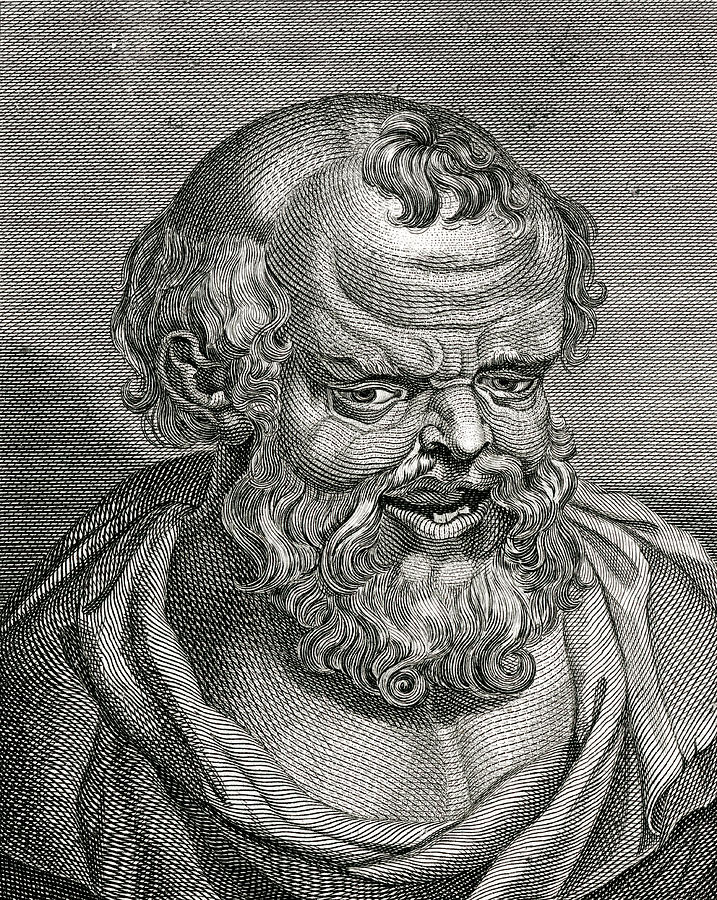460BC

Lived c. 460 — c. 370 BC
Democritus, the laughing philosopher, had ideas far in advance of his time.
He is famous for his atomic theory featuring tiny particles always in motion interacting through collisions; his belief that the universe is governed entirely by natural, mechanistic laws rather than gods; his description of a universe containing an infinity of diverse inhabited worlds; his assertion that nothing is actually something; his deduction that the light of stars explains the Milky Way’s appearance; and his discovery that a cone’s volume is one-third that of the cylinder with the same base and height.
Democritus wrote eloquently on subjects as diverse as the origin of human beings, artistic perspective, mathematics, anthropology, biology, medicine, cosmology, poetry, physics, and atomic theory.
This argument is based on the relationship Democritus had with contemporary philosopher Leucippus, who is renowned for sharing his theory about atoms with him. However, their theories came down to a different basis, a distinction that allows Democritus to be given credit for a theory that would go on to become a staple of the modern scientific tradition.
